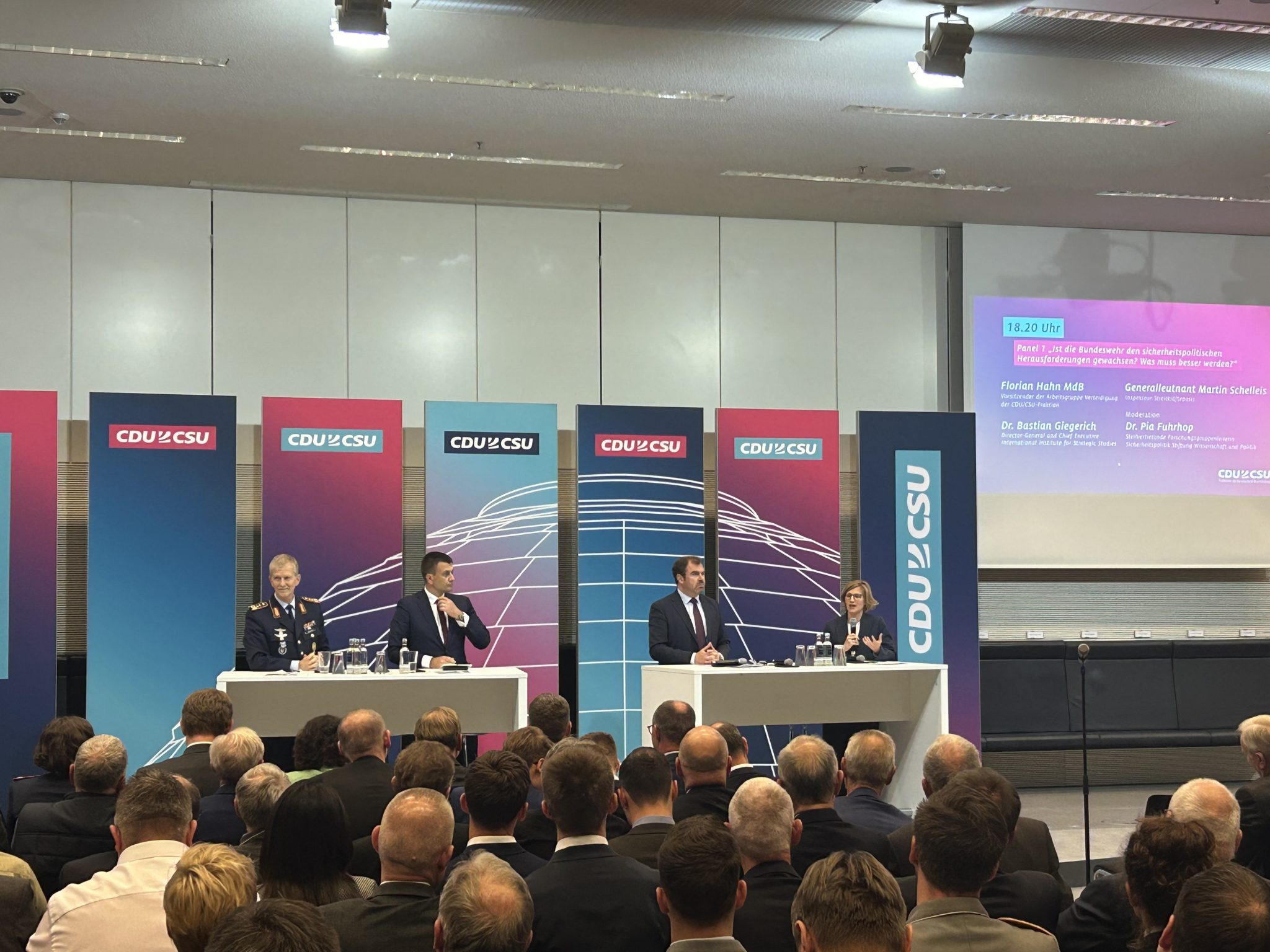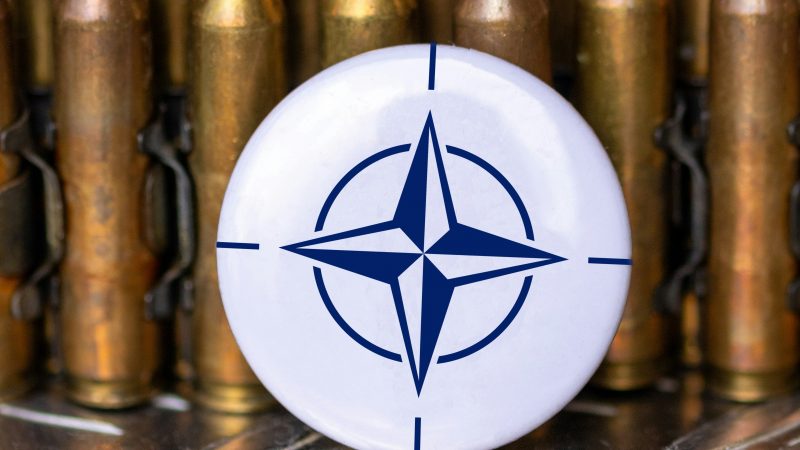German Opposition Positions Itself on Defense Policy

More money for the military and a National Security Council in the Chancellor’s Office – these are the cornerstones for the CDU/CSU parliamentary group when it comes to taking back the government next year.
The CDU/CSU parliamentary group has called, and about 400 guests have come. In the packed parliamentary group room of the party in the Bundestag building, the chairman of the largest opposition faction, Friedrich Merz, presented his ideas for a new Bundeswehr after the “Zeitenwende”.
Those in glass houses
Apart from a few jabs, Merz didn’t go too hard on the opposition. The hesitant attitude of Chancellor Olaf Scholz and a few members of the SPD faction towards Ukraine aid was the core of the criticism. “Zeitenwende” is for everyone.
Of course, Merz is aware that it was his party that was in government responsibility for many years and continued to cut the Bundeswehr. The so-called “peace dividend” was the gateway to save money on the Bundeswehr to invest it elsewhere – especially in the social sector.
The CDU’s about-face in defense policy
But now the Union’s about-face after the chancellor’s turning point. “We – including the Union – have been saving for years and decades. But defense has a price, and we will have to pay it if we want to continue living in peace and freedom.”
So, members in the plenary and many in the room also asked: “How much do we have to invest?” And: “Where will the money come from?” The last question remained unanswered. However, they were more specific about the level of future defense budgets. It should be 75-80 billion euros if the Union takes over the government next year. That is even more than the claimed “+10 billion” from January this year.
Compared to the current 50 billion euros, this would be an annual increase of 60 percent in the defense budget. The CDU therefore also assumes that there must be a “profound change in priorities” for the coming state expenditures.
Because, as Friedrich Merz puts it: “We owe the Bundeswehr filled depots with all calibers.” Even though there was grateful applause for this popular demand in defense policy circles. The calculation is not entirely correct.
Research and development for increased defense capability
Do we really need expensive tanks, jets, and missiles to be prepared for the wars of the future? Today, the fate on the battlefield is already decided by off-the-shelf drones from the hardware store. New laser technology is on the verge of widespread introduction into the armed forces. There is no longer such a strong need for heavily armored combat tanks, equipped with personnel that fires bullets with limited range when far-reaching laser weapons can generate the same kinetic energy much more precisely and inexpensively.
But that requires research and development. And that was the surprisingly focused emphasis of the opposition leader in the German Bundestag for experts. “To remain state-of-the-art, we must invest in research and development. Germany must become the number one research venue in Europe in the field of defense.” In this context, he also called for a change in mentality in German science. “Even civilian research institutions must serve the defense of our country,” was the CDU’s clear demand to free science in Germany.
At least the last demand will cause controversy in research and education. Professors imbued with peace probably would prefer not to volunteer for patriotic service for the armed forces. And this debate about opinion and morality is typically German. It was not held during this event. The convictions were too monotonous. But if the door to debate is opened wide – at the latest by the 2025 federal election campaign – then even the convinced defenders of the Union faction will face opposition.
A last word on the proposed National Security Council: It is one of the undead in the political security debate. The Networked Security Forum has been reporting on it for years. In that respect, it’s just another fleeting idea that many have had but has yet to be implemented.







One thought on “German Opposition Positions Itself on Defense Policy”
Comments are closed.